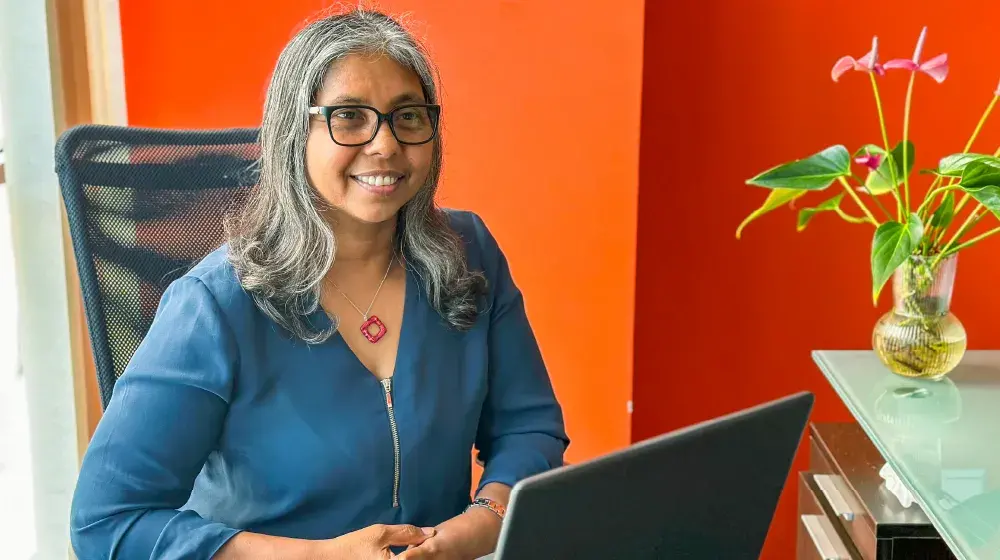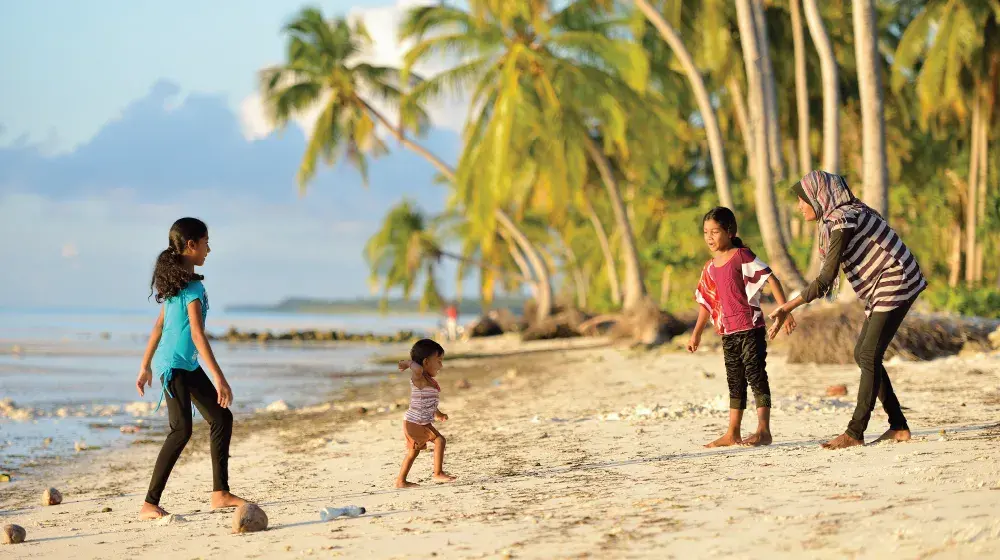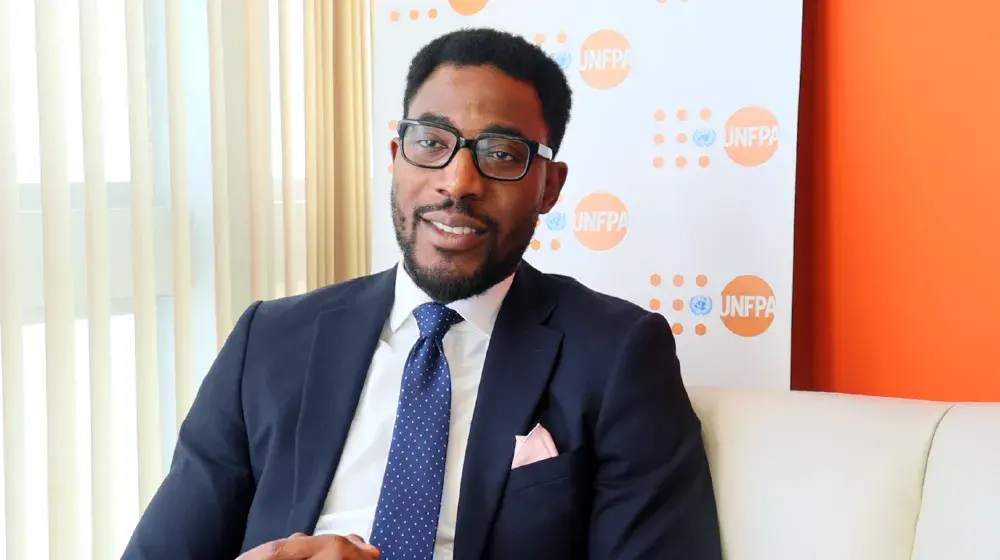In 2009, former Maldivian Attorney General Husnu Suood voiced his concerns about disturbing practices happening in his hometown in Addu Atoll.[1] Anecdotal evidence suggested “female circumcision” was increasingly being promoted by religious scholars. This watershed moment was the first time in recent history in the Maldives that a public official brought the scourge of female genital mutilation (FGM) out in the open and onto the policy table.
Since then, tireless advocacy by civil society and gender advocates has led to the inclusion of a question on FGM in the Maldives’ 2016 Demographic and Health Survey. The findings have come as a surprise to many policy makers. They did not expect the prevalence to be as high, with one in 10 girls and women reporting having undergone some form of this harmful practice.
But the surprise perhaps is we should be surprised at the escalation of this and other harms against women and girls in an increasingly conservative Maldives - reflecting the wider realities of an increasingly conservative world.
This year’s flagship UNFPA State of the World Population Report (SWOP), launched on 30th June 2020, is titled Against my will: Defying the practices that harm women and girls and undermine equality. It highlights the hideous and detrimental harmful practices women and girls face across the globe, including female genital mutilation, child marriage and son preference resulting in gender-biased sex selection.
“At a time when authorities are overwhelmed with unprecedented socioeconomic challenges arising from the COVID-19 pandemic, this insightful report’s timing is apropos,” remarks Aneesa Ahmed, a prominent gender advocate in the Maldives. “During crises and periods of economic hardship, these usually hidden human rights violations escalate, but at the same time, it can become harder for women and girls to get help.”
There are several forms of FGM, ranging from genital pricking - the type that appears to be most prevalent in the Maldives - to wholescale cutting of the labia and clitoris. While almost half of female genital mutilation procedures are performed by doctors and health professionals, one in three women have had their genitals cut or pricked by traditional practitioners.[2]
Despite the medicalization of FGM, the reality is that the practice has no medical value whatsoever - the World Health Organization condemns as well. It can lead to serious medical complications both at the time of genital cutting and later in life, as well as damaging psychosocial health impacts.
This horrendous practice cuts across all wealth quantiles but is most common among women with no education.
Data show a downward trend with age: FGM is more common among older Maldivian women in their 40s and above, with the highest prevalence occurring in women ages 45 to 49 years and the lowest in women 15 to 19 years.
But these data shouldn’t lead to complacence. Despite the apparent decline in prevalence, it is striking that almost one in 10 women believe FGM should continue. These perceptions are in line with the growing religious discourse and the open promotion of harmful practices by a body of extreme thinkers who suggest the practice is a Sunnah - a teaching of the Prophet Muhammad.[3] Such misconceptions are even influencing policy making; in January 2020, for example, the Ministry of Health opened the subject for clarification.[4] [5]
Another worrying trend emerging in Maldives is unregistered child and early marriage, which, like FGM and other harmful practices against girls and women, is rooted in unequal gender norms. While 2016 data show the average age of women’s first marriages had increased to their early 20s,[6] over 2019 and 2020, the Maldives Police Services received 2 reports of unregistered child marriages. And, there are likely several more cases unknown to the authorities. In addition, 95[7] adolescent pregnancies were reported out of wedlock, which is high by regional standards, given the laws preventing child marriage.
An example of this shocked the nation last November, when news of a 13-year-old girl cohabitating with a 26-year-old man in an unregistered marriage surfaced[8] [9]. It was reported that this was actually the girl’s second marriage, and she had already given birth.
This example, and moreover the increase in police reports, shows that unregistered child marriages could be on the rise as a way around recent laws. These include the Family Act of 2001, which explicitly prohibits child marriage, and the nullification of its exemption clause by the Child Rights Act of 2019, which came into effect earlier this year.
Both FGM and child marriage cause irreversible damage that will have lasting impacts on girls, their families, communities, and ultimately society. These injustices may deny girls’ prospects for education, and are likely to prevent them from enjoying good health and opportunities to be productive contributors to the economy.
Indeed, a girl forced into marriage, or in the case of Maldives, one who becomes pregnant outside of wedlock, is more likely to drop out of school and live in poverty for the rest of her life. A qualitative research study carried out by UNFPA reveals that this becomes a vicious cycle, from which it is extremely difficult to escape, and often carries over into the next generation.[10]
“We need to understand the drivers of FGM and child marriage,” explains Ms. Catherine Haswell, UN Resident Coordinator, “No law or policy alone can end these harmful practices without also educating our communities on the entrenched gender discrimination that enables them. Only when these norms shift and girls have their rights fulfilled can we make progress in achieving the Sustainable Development Goals.”
Addressing harmful practices rooted in a lack of knowledge requires education, both in school settings and in society as a whole.
Ms. Ritsu Nacken, UNFPA Country Director for the Maldives, points out that comprehensive sexuality education (CSE) is a critical tool successfully implemented in other countries to impart human rights values - including gender equality and women’s empowerment - to the younger generation. Ms. Nacken says “CSE not only helps avoid unwanted pregnancy, but also equip young people with important life skills to fulfill their potential.”
UNFPA’s ambitious goal to end all harmful practices by 2030 encourage us to talk about difficult topics. But we can no longer shy away from these essential and transformative conversations, leading to evidence-based policy decisions, if we are to end child marriage and FGM in the Maldives for once and for all.
Learn more about what needs to be done in the State of the World Population Report 2020, which is launched virtually and can be viewed here: www.unfpa.org/AgainstMyWill
[7] Reports from Jan 2017 to Aug 2019, Ministry of Gender Family and Social Services.





